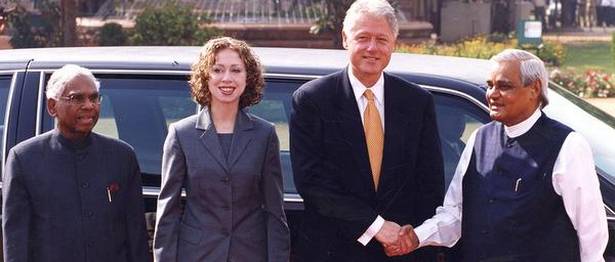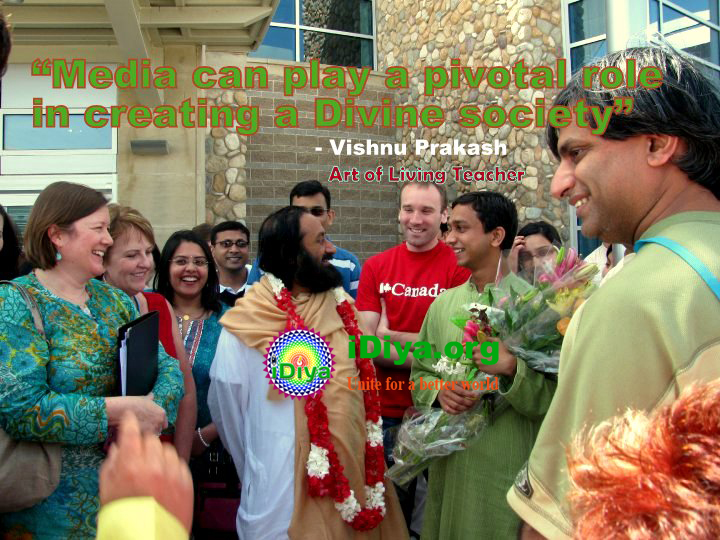
Atal Bihari Vajpayee, the first non-Congress Prime Minister to complete full term laid a strong foundation for Indian foreign policy. Akin to his natural attributes of being a natural strategist, consensus-builder, democrat, optimist he not only run a minority government, undeterred by the compulsions of coalition he took bold foreign policy decisions and laid ground for India’s elevation in global arena. Vajpayee’s strategic vision towards India has steadily evolved over years right from his formative years of political career as the external affairs minister in Morarji Desai’s cabinet in 1977. By delivering UNGA address in Hindi for the first time, he not only created mark for himself but effectively carved a unique civilizational identity for India at the international forum. Having deeply imbibed the sacrosanct belief of India’s exceptionalism which is at the root of Hindu nationalism, expounded RSS stalwarts Vinay Savarkar and M.S.Golwalkar he steadfastly upheld national interests. His approach is also influenced by Bharatiya Jan Sangh’s (BJS) agenda of enhancing India’s military and economic capabilities.
Being a pragmatic leader, considering the geopolitical realities and strategic need to engage with Northern neighbour, China, Vajpayee, in February 1979 travelled to China in response to invitation from Chinese foreign minister Huang Hua. Aside apprising them of the initiatives taken by India for building a climate of confidence, he called for restoration of Indo-China bilateral ties, reinforced the need for non-interference in internal affairs, expressed concerns at the construction of Karakoram Highway and clarified that India will not object to normal Sino-Pakistan ties. With the outbreak of Sino-Vietnam, Vajpayee cut short his visit. Upon his return to India, addressing Parliament Vajpayee urged, “Fighting should end immediately and as a first step, Chinese forces should withdraw from Vietnam”. Further he expressed India’s solidarity to the brave soldiers Republic of Vietnam. Vajpayee always had a clear vision about geopolitics and never dilly-dallied in calling a spade a spade.
In the six years of his Prime Ministership, Vajpayee assiduously pursued a pragmatic foreign policy raising above distorted ideological perspectives. Undeterred by punishing Western sanctions and pressure, Vajpayee within days of assuming charge as Prime Minister expedited highly secretive “Operation Shakti” culminating in the explosion of three thermonuclear bombs in May 1998. Months after India’s nuclear test, with China’s technological imports Pakistan conducted six nuclear tests. Allaying fears of the West worried of highly volatile South Asia’s nuclear environment, Vajpayee announced a voluntary moratorium on nuclear testing and pledged “no first use” (NFU). Internationally hyphenation of India and Pakistan has been the theme. US subscribed to the policy and imposed sanctions on India and Pakistan. India for once became global “pariah”.
To resurrect fragile bilateral ties with Pakistan, in a big diplomatic push Vajpayee launched a bus service, Sada-e-Sarhad to Lahore from Delhi in February 1999. He travelled in the bus to Lahore carrying message of peace. In a bid to normalise relations, Vajpayee and his Pakistani counterpart Nawaz Sharif signed Lahore Declaration warranting unauthorised use of nuclear weapons. In response to India’s offer of friendship, to avenge India’s occupation of Siachen Glacier in 1984, Pakistan infiltrated India and stealthily set up camps in Kargil-Dras sector and a full-fledged war erupted in May 1999. Inspiring and extending rock solid support to Armed forces, despite repeated provocations Vajpayee prevailed upon the forces not to cross the LoC (Line of Control). Indian forces dominated all the three arenas of the war zone within no time. Convinced of India’s restraint of not crossing the LoC, Clinton called Nawaz Sharif to Washington and exhorted him to withdraw Pakistan forces unconditionally. Vajpayee’s strategic brilliance ensured that for the first time America supported India. India’s biggest diplomatic win during Kargil war eventually catalysed America’s tilt towards India. Except France which steadfastly endorsed India’s compulsion to be nuclear weapons state, all other major countries strictly denounced India’s nuclear tests. Indeed, it later emerged that Vajpayee in his personal communication to Clinton mentioned of China’s growing strategic heft as the principal reason behind India’s expeditious nuclear weapons testing. Throughout the challenging phase of sanctions, Indian opposition which is now singing praises of Vajpayee after his death, had lashed out at Vajpayee for his nuclear adventurism.
President Bill Clinton’s strategic visit of March 2000 to South Asia turned out to be a new milestone for Indo-US relations. Clinton who first visited Pakistan to negotiate with Pakistan over emergence of Taliban travelled to India as well. After President Carter’s visit to India in 1978, Clinton was the first US president to visit India after a gap of 22 years. The military rule and termination of democracy in Pakistan as opposed to continuous flow of democratic credentials in India generated a favourable opinion of India. Both countries signed comprehensive document: “India relations-A vision for 21st century”. Reciprocating Clinton’s visit, Vajpayee visited US in September 2000 and addressed the joint session of Congress. He remarked that, “American people have shown that democracy and individual liberty provide the conditions in which knowledge progresses, science discovers, innovation occurs enterprise thrives and ultimately people advance. Just as American lesson has been an experience in what people can achieve in a democratic framework, India has been laboratory of a democratic process rising to meet the strongest challenges that can be flung at it”. He even added, “we both cherish, preserve and promote human rights such as freedom of speech, political choice and religious beliefs. These are the universal values that form the foundation of more tolerant and compassionate societies, a more non-violent world free from tensions and fear”. Stressing the need for dialogue between two democracies he termed India and US as “natural allies” and should work together closely for international peace, progress and security in the 21st century. Vajpayee coined the term “natural allies” used to best describe the similarities between India and the US. His speech resonated well with American policies and soon Vice-President Al Gore echoed that the World’s two largest democracies should work together. Vajpayee’s pledge of nuclear restraint (NFU), ban on nuclear tests made a formidable impact on the US administration. After Vajpayee’s fervent push, external affairs minister Jaswant Singh held series of long negotiations with his counterpart Strobe Talbott to consolidate ties with the US. Through persistent engagement and negotiations through interlocutors, Vajpayee managed to communicate to American that its policy of hyphenating India and Pakistan is flawed. In the process, India apprised America of its strategic compulsions and impending security threats from two neighbours China and Pakistan which are nuclear armed countries as well. Vajpayee’s significant policy shift, not getting swayed away by unwarranted American consternation has become mainstay of Indian foreign policy.
Despite Pakistan’s surreptitious attempts to inflict damage to India, Vajpayee made renewed efforts to engage with the western neighbour for larger peace and stability of the region. After ignominy of Kargil war defeat, Pakistan’s ISI in collaboration with Afghan Taliban hijacked IC-814 Indian Airlines flight from Kathmandu to Delhi carrying 176 passengers to secure release of dreaded Pakistani terrorists Masood Azhar and two others in December 1999. Again, in July 2001, to give peace a chance, Vajpayee and President of Pakistan Pervez Musharraf met in Agra to resolve the Kashmir issue. But the Agra summit collapsed. In December 2001, Pakistan terrorist outfits LeT and JeM launched attacks on Indian parliament. Enraged by covert attacks, India readied troops to retaliate, but was bogged down China’s reluctance to act against Pakistan. India’s restraint, amidst Pakistan’s punitive actions changed international perception of India. Terrorism soon become another fulcrum of Indo-US strategic cooperation. Regardless of Pakistan’s relentless efforts to destabilise India, against all odds, Vajpayee opted for normalisation of ties with Pakistan and desired friendship for he believed that we can change friends but not neighbours. On his trip to Kashmir in 2003, Vajpayee resumed Lahore bus service suspended after 2001 Parliament attacks and extended hand of friendship to Pakistan. He travelled to Islamabad in 2004. Both countries signed an agreement whereby Pakistan has “promised not to allow any territory under its control against India”. Characteristic of Pakistan double-speak and subterfuge, it backtracked. Despite, Vajpayee’s generosity and immense diplomatic investment, Pakistan core agenda of anti-Indianism remains unchanged and continues to threaten bilateral peace.
Cognizant of importance of “a good neighbourhood policy” Vajpayee visited China in 2003 and instituted a dialogue process between “Special Representatives” of both countries to resolve outstanding border issue. In the process, India accepted Tibetan Autonomous region as part of China and China recognised Sikkim as integral part of India. Vajpayee even travelled to Indonesia and Vietnam. He strengthened ties with longstanding friend Russia, started the annual summits and elevated Indo-Russian ties to strategic partnership.
Interestingly after painstakingly building relations with US, in lieu of national interests after much consideration Vajpayee declined to send troops to Iraq. Despite the unprecedented pressure aftermath nuclear tests and international censure, Vajpayee made audacious efforts to impress upon the World that India is a responsible nuclear power. Reconciliation with US and his genuine conviction to earn the trust of overbearing global power, US has made it easy for his successors to strike a civil nuclear deal. Vajpayee has infused new life to the Indo-US relations that has become cornerstone of India’s contemporary foreign policy. His successors, Prime Minister Manmohan Singh and Narendra Modi divested Indian foreign policy from binaries and assiduously strengthened ties with America. Vajpayee’s pragmatic approach, realism and unflinching commitment to uphold national interests even during globally and economically challenging times will be an exemplar for generations to come.










